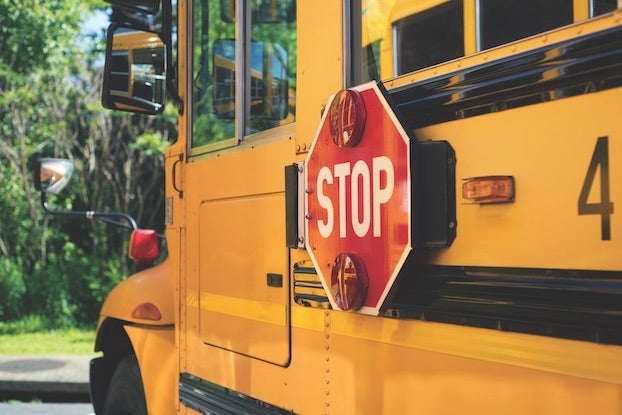Hurricane or not, Karen Merrill is prepared to whip out a meal
Published 5:51 am Wednesday, September 14, 2022

- Karen Merrill will be sharing her strategy to help others provide simple, tasty family meals out of pantry basics at 1 p.m. Wednesday, Sept. 14, at Sulphur Christian Community Coalition (SC3), 501 E. Burton St. in Sulphur. (Special to the American Press)
About 12 years ago, Karen Merrill went from banker to baker, and she’s never looked back.
“At that time, if you’d given me a sack of flour to feed my family, I would have told them to grab a spoon and dig in,” Merrill said with a chuckle. “My mother really wasn’t a cook, and I never learned,”
Merrill started by learning the basics of bread making, but she didn’t stop there. She learned to pressure cook and preserve fruits and vegetables through canning, dehydration and other methods.
Merrill will be sharing her strategy to help others provide simple, tasty family meals out of pantry basics on Wednesday, Sept. 14 at 1 p.m. at Sulphur Christian Community Coalition (SC3), 501 E. Burton St. in Sulphur.
Being without electricity for almost a month after Hurricane Laura prompted her to be better prepared to feed her family, including grandchildren in the advent of another disaster. The method also reduces the stress of figuring out what everyone is going to eat based on what foods are available. Some stores were closed due to hurricane damage and those that did open had limited supplies.
“I wanted to be prepared in case of a hurricane, and with all the news about food shortages and drought, it was important to me to have a plan in place,” she said.
When she returned from the grocery store with 50 pounds of beans and rice, her husband gave her a look and asked, “That’s your plan?”
“I didn’t really want to eat beans and rice for the rest of my life either,” she said.
So, she looked in her own pantry, talked to a couple of people, visited the world wide web and came up with a plan. In a large plastic container from a discount store, she now has 30 days of food and meal ingredients organized in five-pound zip lock bags.
“For instance, in one zip lock I might have a can of evaporated milk, egg noodles and tuna for tuna casserole. In another, Hormel tamales and Spanish Rice, all very simple.
Shelf stable ingredients are organized and the zip lock labeled, including an expiration date. For breakfast, she might throw in oatmeal packets and for lunch canned ravioli, for example. She has dehydrated six one-pound bags of mixed vegetables that now fit into a mason jar. The vegetables are added to Ramen noodles. Cooking is done outside on a burner fueled with propane or the propane grill which has a burner.
In her pursuit of learning the ways of preservation before the days of refrigeration, Merrill has successfully preserved eggs and rendered chicken fat called schmaltz, choosing to eat the crunchy skins as her reward for her labors, or at least that’s how her grandchildren see it.
“I just tried some of the eggs that I waterglassed for the first time last year,” she said. “I floated them first, but I would do that for any eggs,” she said.
Preserving eggs utilizing the water glassing method allows farm-fresh eggs to remain fresh between one year to 18 months. It’s only for freshly-laid eggs that are unwashed – but clean – with the bloom intact. Clean means free of dirt, debris, waste, yolk, egg white remnants or broken shell fragments. Before a hen lays an egg, her body creates a protective layer called the bloom, which protects the egg from bacteria getting inside the egg’s pores. Pickling lime or sodium silicate is used with water to preserve the eggs. The float test works to indicate whether an egg has gone bad because air builds up inside an egg as it ages. An older egg will stand on its end or float in water. “Good” eggs will sink.
Merrill has no regrets for the decision she made 12 years ago. Today, feels more confident about helping young women who are deciding to get involved with homemaking and homeschooling, using Titus, chapter 2 as a guideline.
“I am a homemaker and that’s my purpose, to be a homemaker and help other ladies find their purpose.”





